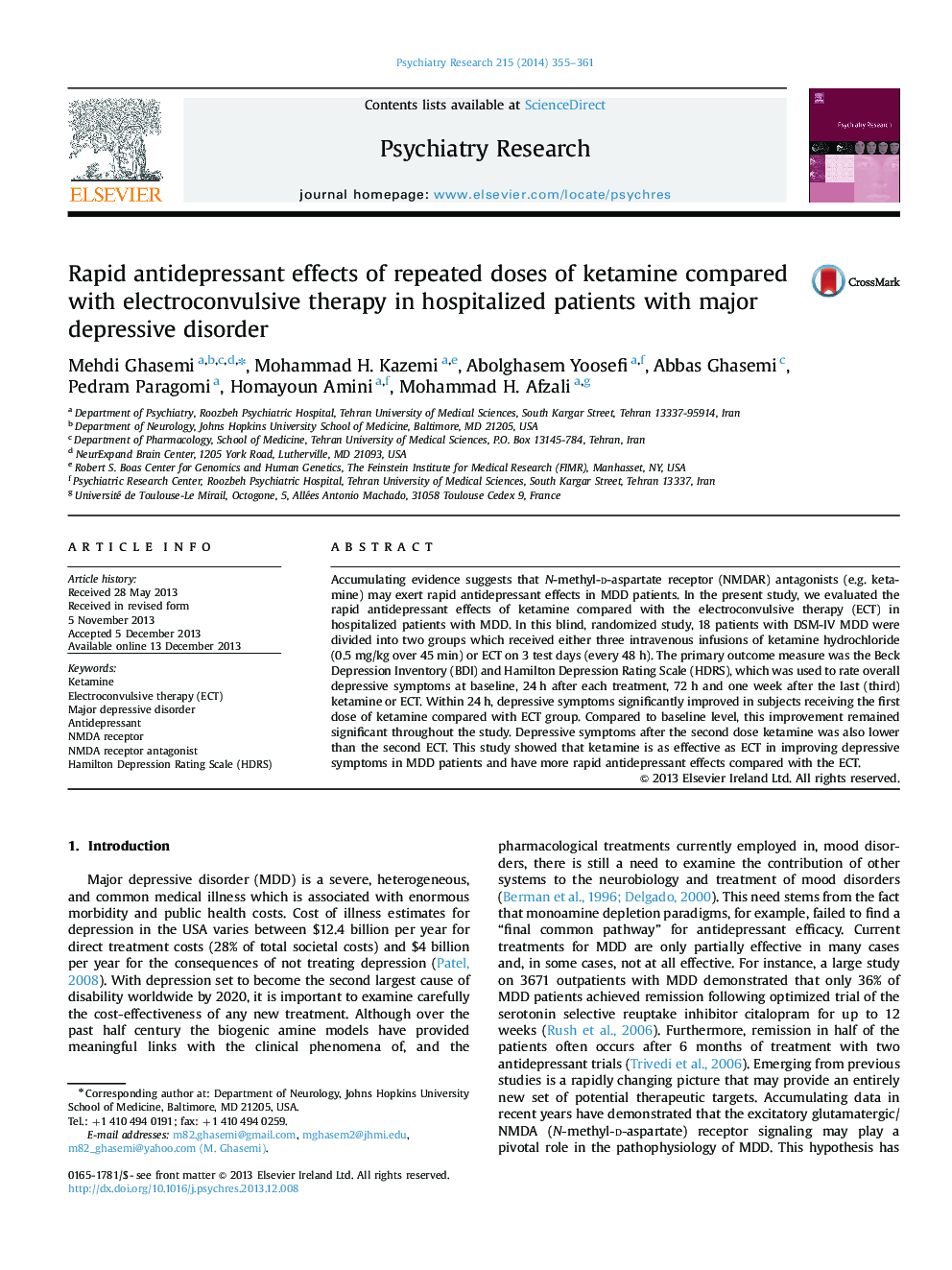| Article ID | Journal | Published Year | Pages | File Type |
|---|---|---|---|---|
| 333057 | Psychiatry Research | 2014 | 7 Pages |
Accumulating evidence suggests that N-methyl-d-aspartate receptor (NMDAR) antagonists (e.g. ketamine) may exert rapid antidepressant effects in MDD patients. In the present study, we evaluated the rapid antidepressant effects of ketamine compared with the electroconvulsive therapy (ECT) in hospitalized patients with MDD. In this blind, randomized study, 18 patients with DSM-IV MDD were divided into two groups which received either three intravenous infusions of ketamine hydrochloride (0.5 mg/kg over 45 min) or ECT on 3 test days (every 48 h). The primary outcome measure was the Beck Depression Inventory (BDI) and Hamilton Depression Rating Scale (HDRS), which was used to rate overall depressive symptoms at baseline, 24 h after each treatment, 72 h and one week after the last (third) ketamine or ECT. Within 24 h, depressive symptoms significantly improved in subjects receiving the first dose of ketamine compared with ECT group. Compared to baseline level, this improvement remained significant throughout the study. Depressive symptoms after the second dose ketamine was also lower than the second ECT. This study showed that ketamine is as effective as ECT in improving depressive symptoms in MDD patients and have more rapid antidepressant effects compared with the ECT.
